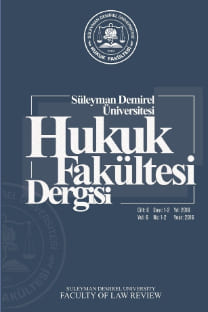ISLAM, NATION-STATE AND THE LEGAL SYSTEM OF MALAYSIA
ABSTRACT
The arrival of the British intervention in the territories now known as
Malaysia did not replace the territorial law which is Islamic law and custom.
However, through the office of the British Residency, legislation modelled after
English law was enacted and British judges who were brought to preside the new
court system brought with them English common law. This saw the indirect
introduction of English law in Malaysia which causes the marginalisation of Islamic
law and custom. The independence of Malaysia in 1957 provides an opportunity to
articulate the position of Islam in the Malaysian legal system. The main vehicle of
this articulation is the Federal Constitution which was enacted in 1957
simultaneously with the declaration of the independence of Malaysia. The Federal
Constitution favours continuity of law and the legal system that exist before the
independence. The Federal Constitution at the same time asserts the special position
of Islam in the nation and the legal system. Among the implication of this
constitutional approach is the continuity of the application of Islamic law in
Malaysia and the existence of a plural court system.
Anahtar Kelimeler:
MALAYSIA, COMMON LAW, ISLAMIC LAW
___
- Soon Singh a/l Bikar Singh v Pertubuhan Kebajikan Islam Malaysia (PERKIM) Kedah & Anor [1999] 1 MLJ 489; Latifah bte Mat Zin v Rosmawati bte Sharibun & Anor [2007] 5 MLJ 101. Farid Sufian Shuaib, “Towards Malaysian Common Law: Convergence between Indigenous Norms and Common Law Methods” (2009) 13 Journal of Law Malaysia Ainan bin Mahamud v Syed Abu Bakar bin Habib Yusof [1939] 1 MLJ 209; section 112 of the Evidence Enactment (Cap 10)
- ISSN: 2146-7129
- Yayın Aralığı: Yılda 2 Sayı
- Başlangıç: 2011
- Yayıncı: SÜLEYMAN DEMİREL ÜNİVERSİTESİ HUKUK FAKÜLTESİ
